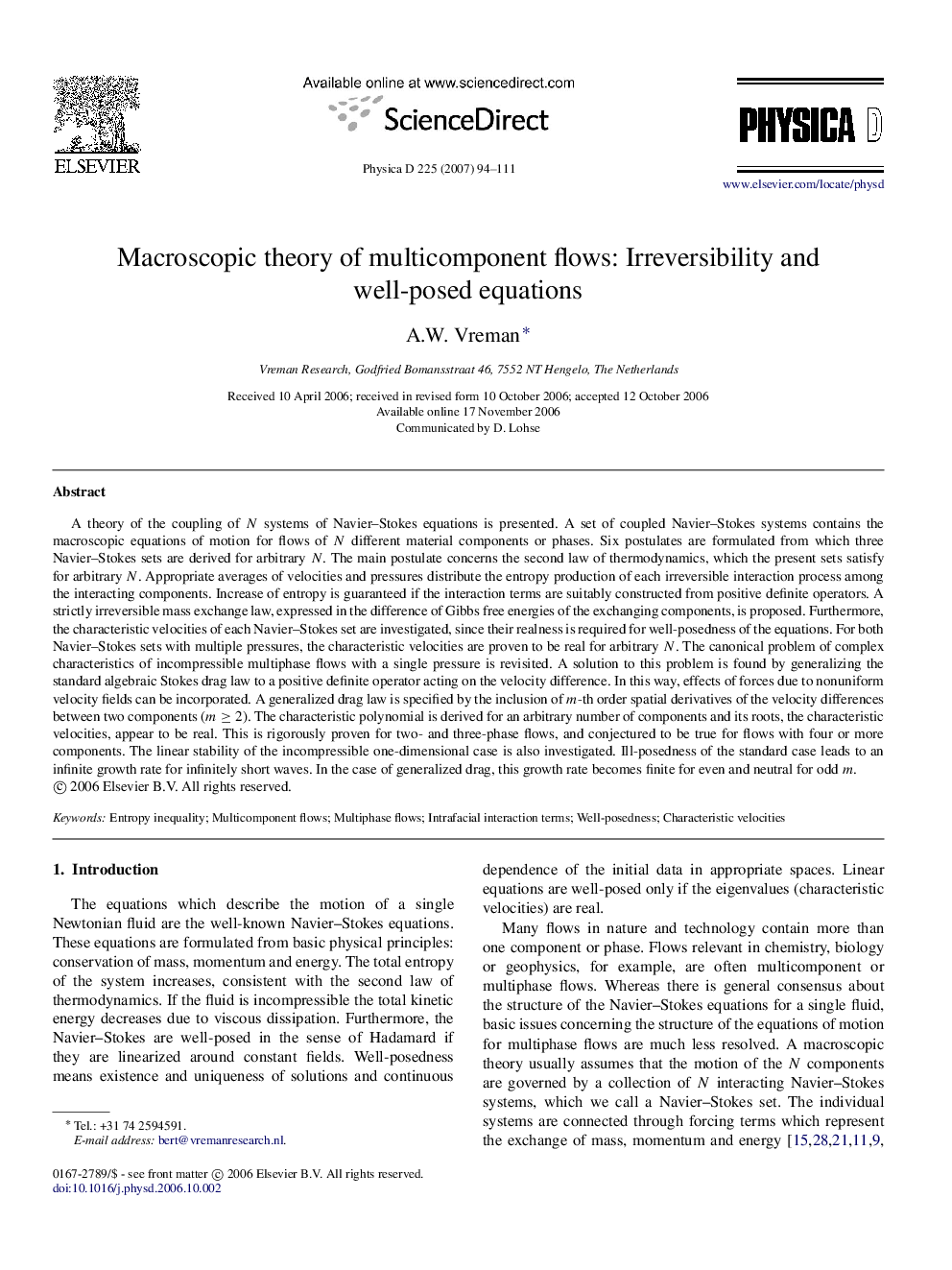| Article ID | Journal | Published Year | Pages | File Type |
|---|---|---|---|---|
| 1897368 | Physica D: Nonlinear Phenomena | 2007 | 18 Pages |
A theory of the coupling of NN systems of Navier–Stokes equations is presented. A set of coupled Navier–Stokes systems contains the macroscopic equations of motion for flows of NN different material components or phases. Six postulates are formulated from which three Navier–Stokes sets are derived for arbitrary NN. The main postulate concerns the second law of thermodynamics, which the present sets satisfy for arbitrary NN. Appropriate averages of velocities and pressures distribute the entropy production of each irreversible interaction process among the interacting components. Increase of entropy is guaranteed if the interaction terms are suitably constructed from positive definite operators. A strictly irreversible mass exchange law, expressed in the difference of Gibbs free energies of the exchanging components, is proposed. Furthermore, the characteristic velocities of each Navier–Stokes set are investigated, since their realness is required for well-posedness of the equations. For both Navier–Stokes sets with multiple pressures, the characteristic velocities are proven to be real for arbitrary NN. The canonical problem of complex characteristics of incompressible multiphase flows with a single pressure is revisited. A solution to this problem is found by generalizing the standard algebraic Stokes drag law to a positive definite operator acting on the velocity difference. In this way, effects of forces due to nonuniform velocity fields can be incorporated. A generalized drag law is specified by the inclusion of mm-th order spatial derivatives of the velocity differences between two components (m≥2m≥2). The characteristic polynomial is derived for an arbitrary number of components and its roots, the characteristic velocities, appear to be real. This is rigorously proven for two- and three-phase flows, and conjectured to be true for flows with four or more components. The linear stability of the incompressible one-dimensional case is also investigated. Ill-posedness of the standard case leads to an infinite growth rate for infinitely short waves. In the case of generalized drag, this growth rate becomes finite for even and neutral for odd mm.
